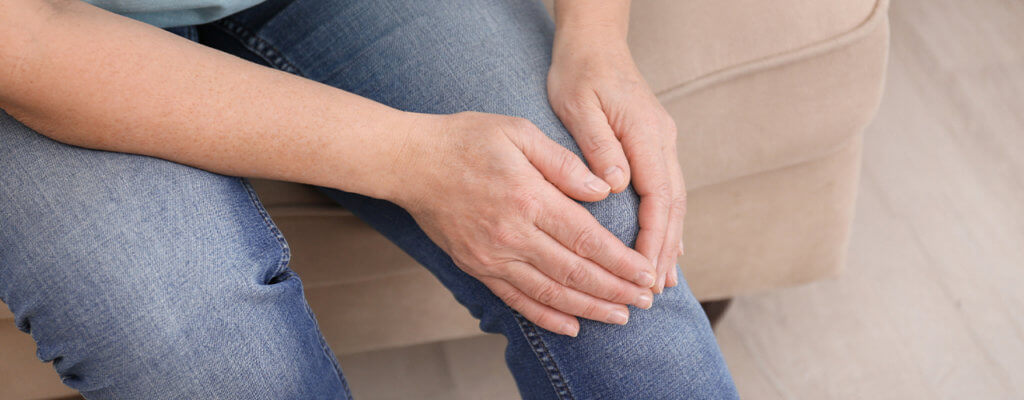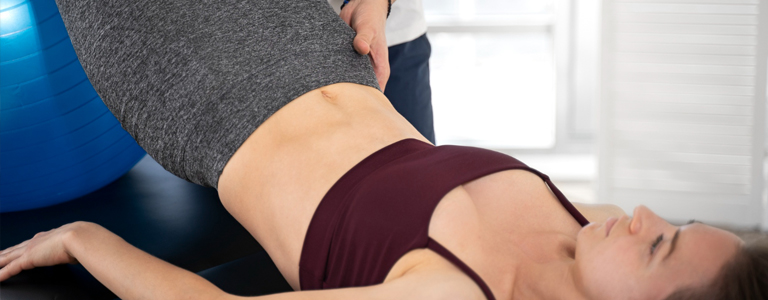You Don’t Have to Live with Constant Pains!
There are many factors that could lead to pain in the hips and knees, from excess weight, to sports injuries, to rising age, to repetitive motion injuries. Regardless of the cause of your hip and/or knee pain, if you experience it regularly, it’s important to find a way to manage it.
Hip and knee pain can be difficult to live with. According to the American Academy of Orthopaedic Surgeons, knee pain is a common condition resulting in 19.4 million pain-related visits to a physician’s office each year!
Many people rely on medications, such as anti-inflammatory drugs to minimize their discomfort. However, these drugs do have potential side effects, so it would be in your best interest to also find other ways to relieve your pain. Physical therapy may be the solution you’re looking for!
Why pain management drugs are not ideal
If you have been prescribed pain relievers by your doctor, it is best to follow the advice they have given you.
However, you are welcome to discuss physical therapy with your doctor as well or with one of our dedicated team members. If you find that your pain level has decreased through physical therapy, you can discuss reducing the use of your pain reliever with your doctor.
PT for persistent pain
You may notice pain relief when you’re actively participating in your PT sessions, but what about when you go home? Your physical therapist’s main goal is to heal your injuries over the long term.
The various exercises and treatments that they prescribe to you will constantly improve your condition so that you experience less pain on a daily basis. As your body gets stronger and more mobile, you are likely to experience less pain in your hips and knees over time.
How will physical therapy benefit me?
If your doctor has told you to take pain relievers every day for your hip and/or knee pain, you should follow your doctor’s recommendations. But it also cannot hurt to ask about alternatives like physical therapy.
Working with a physical therapist can help reduce or eliminate your pain in a variety of ways, including:
- At-home exercises – Did you know you don’t always have to be in a clinical setting to do physical therapy exercises? It’s true! Physical therapy techniques can be incorporated into a home exercise program that can become part of your daily routine.
- Manual physical therapy – Hands-on techniques are used often in physical therapy to reduce pain in your hips and knees. This could include stretching exercises or a variety of massage techniques.
- Laser therapy – Laser therapy has become much more popular in physical therapy for pain management. It can help improve the growth and reproduction of cells, increase circulation, and also reduce inflammation.
- Heat and ice therapy. Heat can be used to improve your mobility and decrease the amount of pain you are experiencing so that you can move more freely. Ice can also be used to lessen pain from your hip and/or knee as well as to reduce inflammation.
- Mobility and flexibility exercises. Often hip and knee pain can lead to loss of mobility and flexibility – which then increases the wear on your joints and leads to even more pain. Physical therapists can take you through exercises to improve your mobility and flexibility so that you can move your limbs and joints in the fullest range of motion that is available based on your body and circumstances.
- Ultrasound therapy. Ultrasound is used by physical therapists to apply heat deeper in your soft tissues to provide pain relief. The heat can improve circulation and aid in healing, which can ultimately reduce the pain you experience day to day.
- Strengthening exercises. Loss of muscular strength can contribute significantly to hip and knee pain because the weaker your muscles get, the more stress is put on your joints. Physical therapy centers around specific exercises designed to target various muscles and strengthen them so that they better support your joints.
- Identifying the root cause of pain. There may be one or several reasons why you are experiencing hip and knee pain. A physical therapist can examine your movement to help identify things that are contributing to your pain, such as poor posture, unhealthy walking patterns or unhealthy movement patterns at work. Once they identify these kinds of issues, physical therapists can tell you how to correct them.
Ready to begin treatments?
Please contact Good Hand Physical Therapy at (908) 323-5753 today to schedule an appointment with a PT who specializes in hip and knee pain. We’re waiting to help you!















